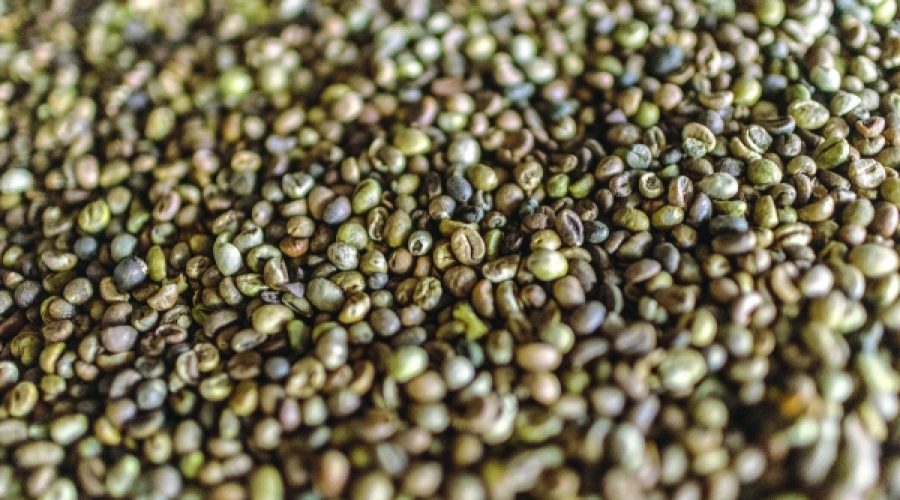Deforestation Threatens Coffee Industry: What It Means for Investors and Business Owners in the Coffee Market
Every day, over 2 billion cups of coffee are consumed worldwide, with demand steadily increasing. However, a new report from Coffee Watch, a nonprofit industry watchdog, reveals a troubling ecological paradox: expanding coffee cultivation by clearing forests is threatening the crop’s future due to changing rainfall patterns.
Published on Wednesday, the report highlights deforestation in Brazil’s southeastern coffee belt and its direct correlation with declining rainfall and coffee crop failures. It shows that as forests are cleared for plantations, local rainfall diminishes, resulting in reduced yields, crop failures, and ultimately higher coffee prices for consumers.
“The ecologically destructive way we grow coffee is going to result in us not having coffee,” warned Etelle Higonnet, Coffee Watch’s director. She explained that deforestation for coffee farming is disrupting rainfall, which in turn harms coffee crops. If this trend persists, farmers will face decreasing outputs despite expanding farmland.
The report explains that clearing forests to meet coffee demand worsens rainfall patterns already limiting farmers’ yields. Coffee plants are particularly sensitive to rain variability and drought. These findings align with recent Brazilian scientific research published in Nature Communications, which reported a roughly 75% decrease in rainfall in the Amazon due to deforestation.
Thanks to advanced mapping and analysis, growing evidence now confirms that deforestation significantly affects rainfall and agricultural conditions, which were previously hard to measure.
This research emerges amid ongoing disputes between Brazil, other coffee producers, and the European Union over a new EU law requiring proof that coffee imported into the bloc was not grown on recently deforested land. Brazil, the world’s largest coffee producer with ideal growing conditions, faces challenges as its key southeastern regions suffer from degraded rainfall and soil fertility linked to ongoing deforestation.
Coffee Watch notes a pivotal drought in 2014 marked the start of near-annual rain shortages in Brazil, with rainfall increasingly mistimed for coffee crop needs. Persistent moisture deficits further dry the soil, undermining plant growth. Last year’s severe drought contributed to global coffee shortages and price spikes, signaling potential future crises.
While Brazil has made some progress in reducing deforestation in certain areas, the report warns that if rainfall cycles collapse, extreme coffee prices could become the norm by 2050 as yields decline.
Importantly, deforestation for agriculture is not exclusive to coffee or Brazil; cattle ranching and soy cultivation are major drivers of forest loss both in Brazil and globally.
Forests play a crucial role in absorbing carbon and regulating climate. Yet, demand for commodities including coffee, cattle, wood, cocoa, soy, palm oil, and rubber drives widespread deforestation. In 2023, the EU passed a law requiring companies dealing in these commodities to demonstrate that their products are not linked to recent deforestation.
Major coffee exporters like Vietnam and Ethiopia are preparing to provide geolocation data tracing their crops’ origins to maintain access to the European market, the largest coffee consumer worldwide. Brazil, however, has opposed the EU legislation, labeling it “unilateral and punitive” and arguing it conflicts with national sovereignty, discriminates against forested countries, and raises production and export costs.
Instead, Brazil proposes changing the economic incentives behind deforestation and creating a fund to pay developing countries for forest protection. Brazil will host the upcoming United Nations climate conference in the Amazon, aiming to advance its environmental agenda amid political shifts and mounting evidence that current practices are unsustainable.
Last month, the European Commission delayed full enforcement of the deforestation law, citing technical unpreparedness. However, on Tuesday, it announced a compromise with phased implementation for large and small companies. The proposal still awaits approval from the European Parliament.
— The New York Times
Special Analysis by Omanet | Navigate Oman’s Market
The escalating deforestation in key coffee-producing countries like Brazil poses a significant risk to global coffee supply stability, which could lead to rising prices and supply chain uncertainties for businesses in Oman reliant on coffee imports. For smart investors and entrepreneurs, this signals opportunities to explore sustainable coffee sourcing and invest in climate-resilient agricultural technologies, while businesses should brace for potential cost increases and diversify supply chains to mitigate risks from environmental changes and evolving international regulations.



